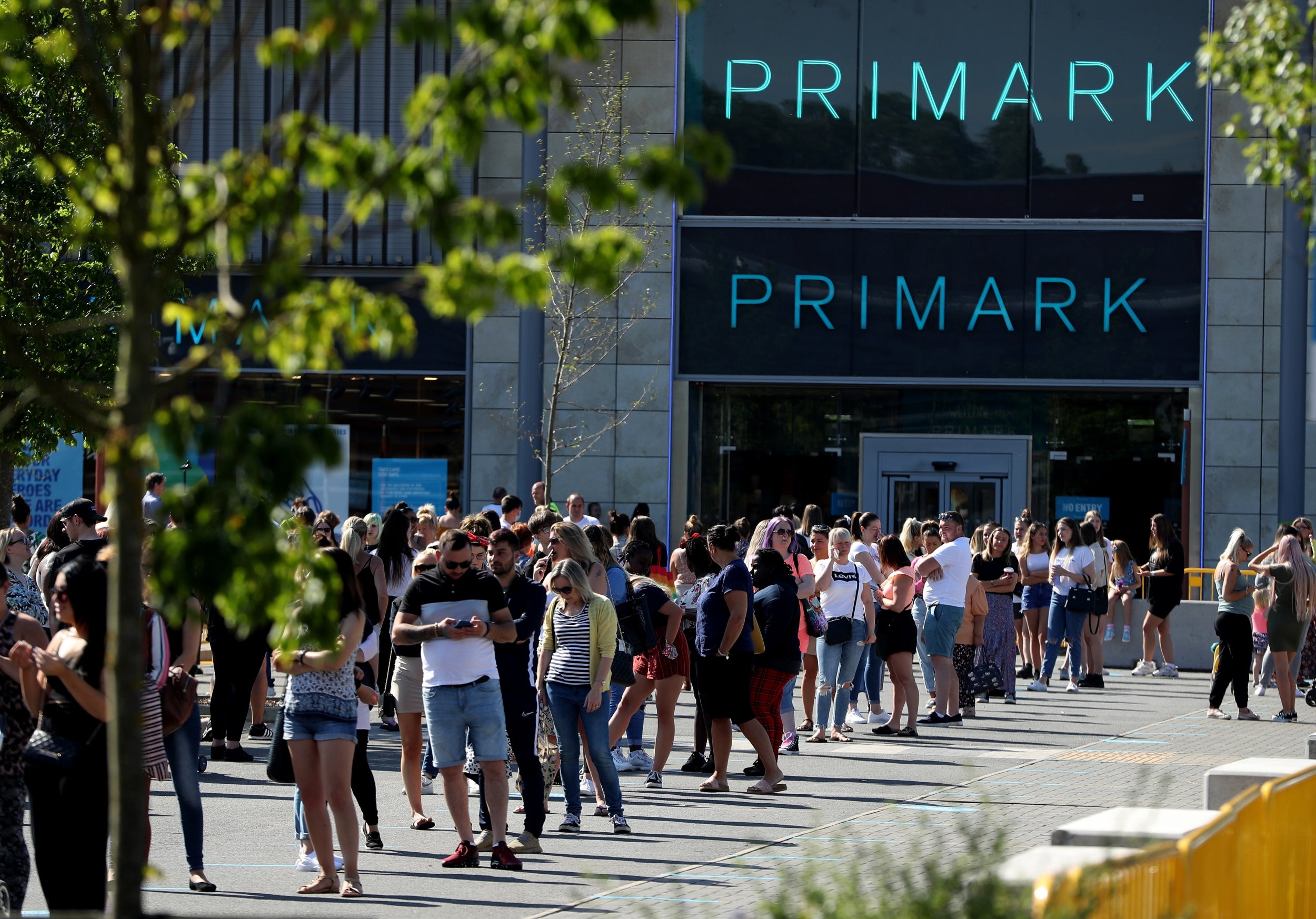High street shopping will never be relaxing again – but we want it back
The great British high street has been teetering on the brink for years, and many feared lockdown would finally kill it off. Not so, says Emma Henderson


Throughout lockdown, we’ve watched as Instagram feeds fill up with other people’s expensive – and extensive – online purchases. OTT coffee machines to make up for the missed morning fix; office chairs to work from home without ruining your back; exercise bikes to keep fit while stuck indoors; indulgent impulse buys such as inflatable hot tubs; books, games, crafts – and absolutely anything you can think of to entertain the kids.
At IndyBest, we’ve seen a huge surge in interest in unusual products, from paddling pools to standing desks, as people use online shopping to make this unexpected situation as comfortable as it can possibly be.
What we’ve not been spending our money on is clothes – apart from luxury joggers, that is. We’ve not had anywhere to go to warrant buying a new outfit: holidays and weddings are cancelled, and we’re not expected to look smart for work any more. We’re barely even leaving the house. What we are buying from fashion brands is a mixture of sportswear and loungewear.
Thanks to this new-found uniform, Boohoo’s online sales surged; Zoom-friendly outfits topped the sales charts. This week, the online fashion retailer reported a staggering 54 per cent increase in profits compared to its previous 12 months, with a pre-tax profit of £92.2m. Shares in the company rose 5.5 per cent after it bought Warehouse and Oasis, which went into administration and failed to find a buyer back in April. This purchase was the first high street takeover of the coronavirus pandemic.
Nevertheless, all this online buying – up 30 per cent since lockdown began, according to the Office for National Statistics (ONS) – is not enough to make up for lost footfall in high street shops. For the past few years, we’ve felt the death of the high street has been near when restaurant chains began collapsing in 2018. Many shops, including Debenhams and House of Fraser, have been teetering on the edge of collapse for some time.
The forced closure of stores due to lockdown saw huge plummets in clothing sales, which fell by half in March and April. ONS reported those months were the lowest-ever recorded for sales of clothing and shoes since it began monitoring our spending habits in 1988. That, along with high rents for physical shops and a huge mass of unsold seasonal stock (which analysts estimated to be worth around £15bn), is all bad news for clothing retailers.
And yet, when non-essential retailers reopened their doors on Monday, it turned out that we do still love our high streets and don’t only want to shop online. People queued up for hours just for the joy of going shopping.
One retailer we cannot buy from online is Primark. It opened all 153 of its stores on Monday and it was the long queues for this brand that drew the most attention across the media. It’s also a shop that families on lower incomes rely on, many of whom shop there for necessity. Queues for Selfridges or the designer outlet Bicester Village, on the outskirts of Oxford, went largely unnoticed.
Despite this enthusiasm, new safety rules for shopping are likely to cause problems for retailers. With changing rooms closed, consumers will buy items and take them home to try on, leaving them more likely to return stock and demand a refund. These returned items will need to be quarantined for 72 hours before they are resold; for small businesses which only have a handful of items in each size, this will have a huge impact on stock levels.
Clothes rails will also have to be more spaced out, resulting in less stock available on the floor to sell. Some shops have also employed “socially distancing wardens” to make sure shoppers adhere to the rules, which could be very off-putting for casual browsers and prevent them getting out their wallets.
The days of a relaxing in-store shopping experience may be over – at least until a coronavirus vaccine is found. But this week shoppers have shown us that that the high street is still close to their hearts, and they want it back.
Yours,
Emma Henderson
IndyBest editor
Join our commenting forum
Join thought-provoking conversations, follow other Independent readers and see their replies
Comments